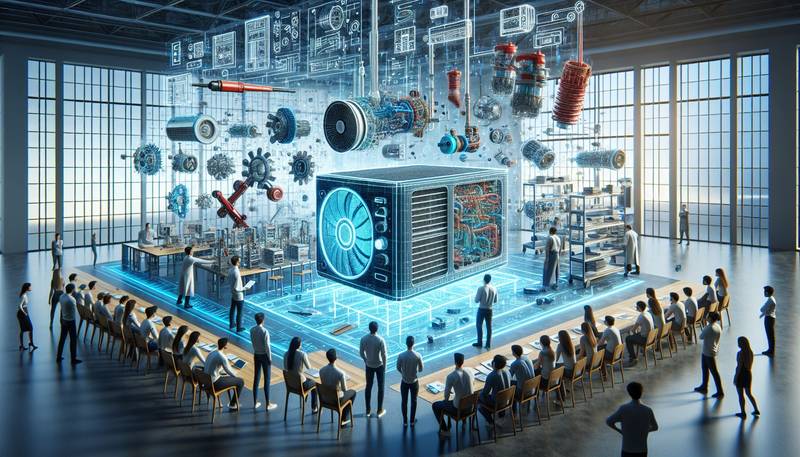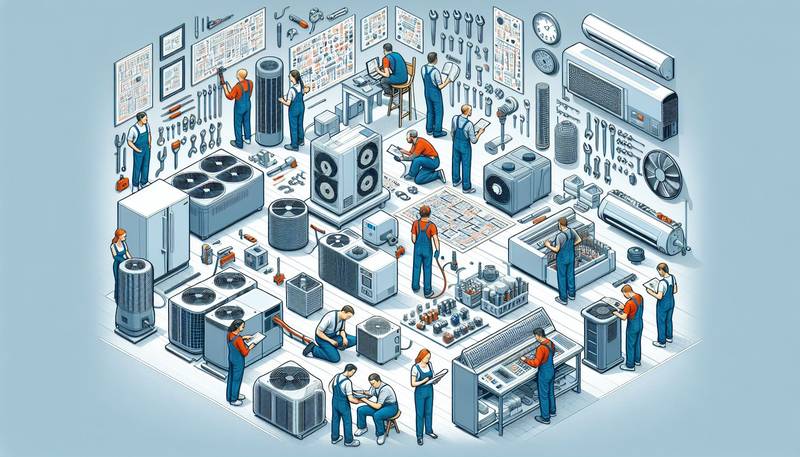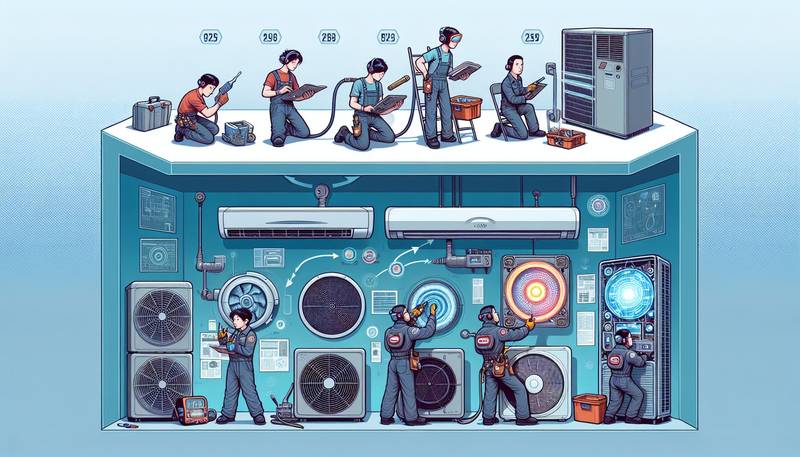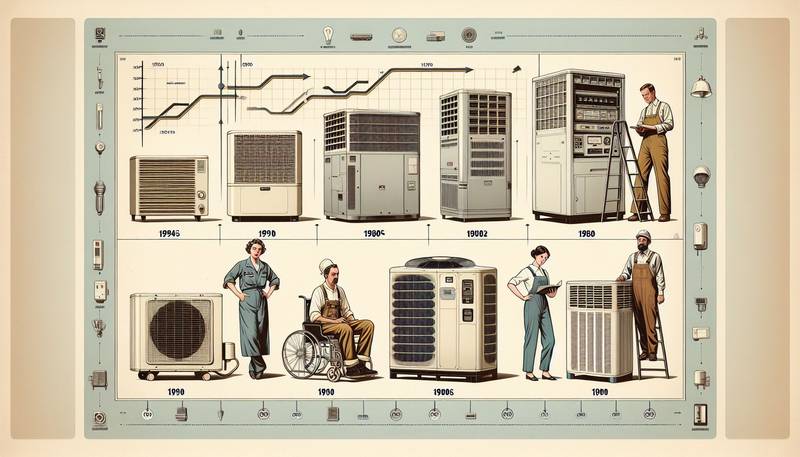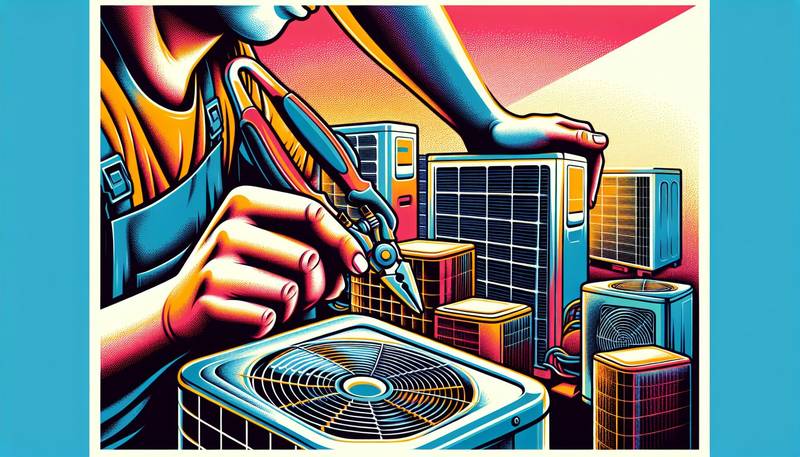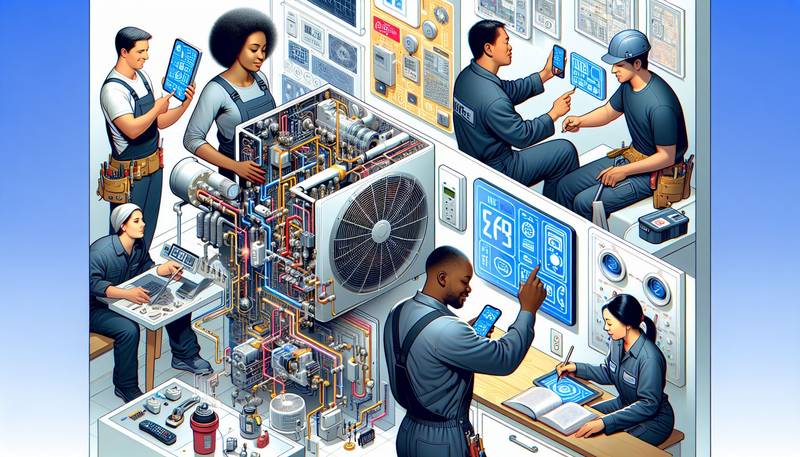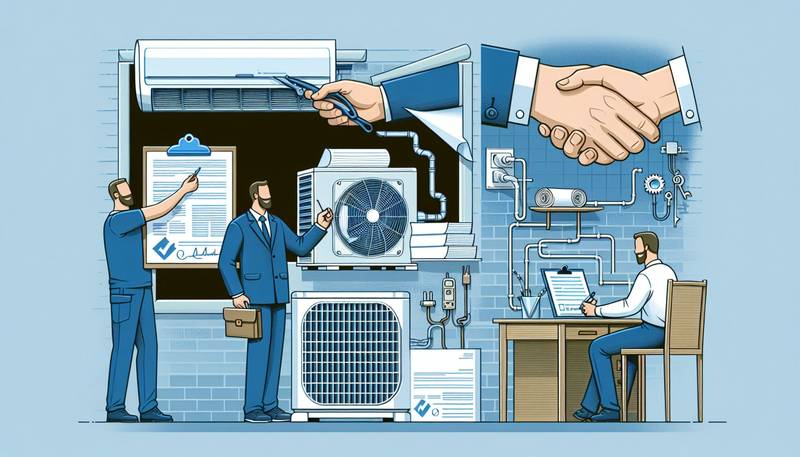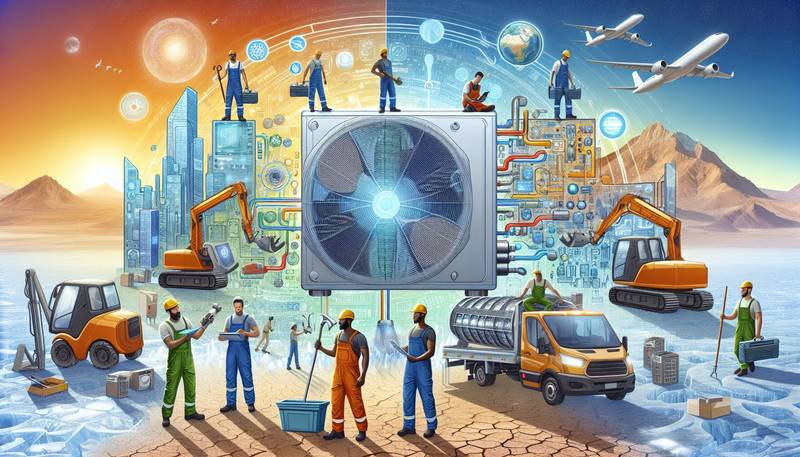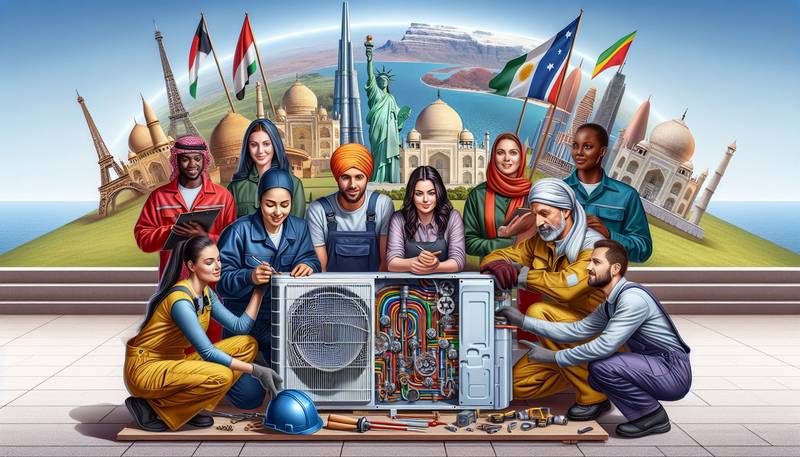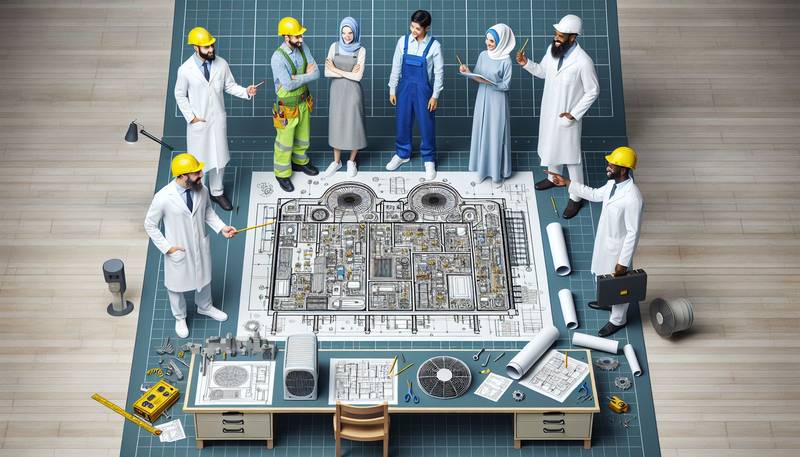Navigating the Future: Careers in Air Conditioning Technology
If you are considering a career in this dynamic industry, there are various pathways and opportunities available to you.
The Importance of Air Conditioning Technology
Air conditioning technology is essential for maintaining optimal indoor air quality, regulating temperature and humidity levels, and ensuring the comfort and well-being of occupants in residential, commercial, and industrial settings. As the world population continues to grow and urbanization accelerates, the demand for efficient and reliable HVAC systems is expected to increase significantly. Moreover, climate change is leading to more frequent extreme weather events, making air conditioning technology even more critical for keeping spaces safe and comfortable.
Career Pathways in Air Conditioning Technology
There are several pathways you can take to build a career in air conditioning technology. One common route is to pursue a degree or certification in HVAC engineering or technology from a vocational school, community college, or university. These programs typically provide a solid foundation in HVAC principles, system design, installation, maintenance, and repair. In addition to technical skills, you may also learn about energy efficiency, sustainability, and the latest advancements in air conditioning technology.
Another pathway is to gain real-world experience through an apprenticeship or on-the-job training program. Many HVAC companies offer apprenticeship opportunities for individuals who are interested in entering the field. This hands-on training can provide you with valuable experience working with different types of HVAC systems, troubleshooting issues, and interacting with customers. It can also help you build a network of industry contacts and potentially secure a full-time job after completing the program.
Areas of Specialization
Within the field of air conditioning technology, there are various areas of specialization that you can explore based on your interests and career goals. Some common specializations include:
HVAC Design Engineer: Design engineers are responsible for creating HVAC systems that meet the specific needs of a building or facility. They work closely with architects, contractors, and clients to develop efficient and sustainable HVAC solutions that comply with building codes and regulations.
HVAC Technician: Technicians are responsible for installing, maintaining, and repairing HVAC systems in residential, commercial, and industrial buildings. They must have a strong understanding of HVAC components, electrical systems, and refrigeration principles to perform their job effectively.
Energy Management Specialist: Energy management specialists focus on optimizing energy efficiency and reducing energy consumption in HVAC systems. They analyze energy usage data, conduct energy audits, and recommend energy-saving strategies to help clients save money and reduce their environmental impact.
Indoor Air Quality Specialist: Indoor air quality specialists are experts in identifying and mitigating indoor air pollutants, such as dust, mold, bacteria, and VOCs. They use specialized tools and techniques to assess air quality levels, recommend solutions for improving indoor air quality, and educate clients on the importance of ventilation and filtration in HVAC systems.
Future Trends and Technologies
The field of air conditioning technology is constantly evolving, driven by advancements in digitalization, automation, and smart technologies. Some of the future trends and technologies that are shaping the industry include:
Smart HVAC Systems: Smart HVAC systems leverage sensors, analytics, and cloud-based platforms to optimize energy efficiency, monitor system performance, and enable remote control and monitoring. These systems can adjust temperature settings, airflow, and humidity levels based on occupancy patterns and weather conditions, leading to significant energy savings and improved comfort.
Internet of Things (IoT): IoT-enabled HVAC devices and equipment can communicate with each other and with a central control system to coordinate operations, diagnose problems, and predict maintenance needs. IoT technologies enable proactive maintenance and remote troubleshooting, reducing downtime and improving system reliability.
Green Building Practices: With an increasing emphasis on sustainability and environmental conservation, green building practices are becoming more prevalent in the air conditioning industry. HVAC professionals are incorporating energy-efficient designs, renewable energy sources, and environmentally friendly refrigerants into their projects to reduce carbon emissions and minimize the ecological footprint of buildings.
Conclusion
As the demand for energy-efficient and sustainable HVAC solutions continues to grow, the field of air conditioning technology offers promising career opportunities for individuals who are passionate about improving indoor environments and enhancing the quality of life for others. Whether you are interested in system design, installation, maintenance, or indoor air quality, there are various pathways and specializations in air conditioning technology that you can pursue to build a successful and rewarding career in the industry.
